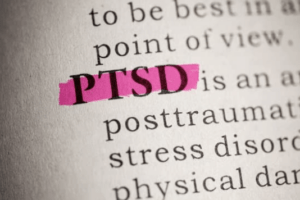
When PTSD Becomes Deadly
Post-traumatic stress disorder or PTSD can increase a veteran’s risk for suicide or attempted suicide. When this becomes deadly, know how you can help save their lives by knowing the signs to look for and how to get them the treatment they need.
The United States Department of Veterans Affairs is active in veteran suicide prevention, including offering programs to family members, friends, and others in the community to help them spot the signs and offer help. There are also several non-profit organizations dedicated to the cause. Still, veterans die from suicide every day, and many of them have undiagnosed, untreated, or unmanaged PTSD.
The Relationship Between PTSD and Suicide
Not only is it difficult to relive traumatic experiences and live with the fear of flashbacks or nightmares, but this disorder is also linked to several other mental health concerns including depression, anxiety, and substance abuse disorders. By understanding PTSD and its dangers, and getting the PTSD treatment necessary, many veterans can reduce their risk of suicide.
PTSD can be difficult to identify, and some veterans do not want to discuss their symptoms. If you or a loved one experience signs of PTSD or you worry they may be at risk of suicide, offer support. Help them understand that you are there for them unconditionally and that they can seek treatment.
In an emergency, veterans experiencing suicidal thoughts can:
- Call the Veterans Crisis Line at 1-800-273-8255 and Press 1
- Chat online with a trained counselor familiar with veterans’ needs
Call 1-888-373-4722 or complete a Free Case Evaluation form
How Can I Spot Warning Signs of Suicidal Ideation or Tendencies?
Family members and friends can help prevent PTSD from becoming deadly by recognizing the warning signs of suicidal ideation and suicide.
Some of these helpful tools can include:
- Talking about suicide or making statements about wishing they were dead
- Obtaining pills, accessing a gun, or collecting other means of taking their own life
- Becoming withdrawn
- Having significant and unusual mood swings
- Becoming preoccupied with death or violence
- Saying they feel trapped or hopeless
- An increase in the use of drugs or alcohol
- Unexplained change in eating or sleeping habits
- Acting in self-destructive ways, such as careless handling of a firearm
- Giving away belongings or taking other steps to “get affairs in order”
- Personality changes, such as becoming severely anxious or agitated
If you see these signs in a veteran you love, take action to help them get the treatment they need. They may have undiagnosed or poorly treated PTSD or another mental health concern.
Can I Get Treatment and VA Disability Benefits For PTSD
Getting treatment for PTSD is one of the best ways to reduce the risk that this mental health concern will lead to suicidal thoughts. Veterans may also qualify for VA disability benefits if they have a PTSD diagnosis related to service.
Call 1-888-373-4722 or complete a Free Case Evaluation form
Talk to a VA Disability Advocate About Your PTSD
When PTSD becomes deadly you need help fast, a VA disability advocate can help fight a VA disability benefits denial. Call (888) 373-4722 today to get started or click here now for a FREE case evaluation.
Call 1-888-373-4722 or complete a Free Case Evaluation form
Read More Here:
- SSDI For Veterans
- Can My Spouse Receive My VA Disability After I Die?
- The Easiest Way to a 100% VA Disability Rating
- VA Benefits For Spouses of 100% Disabled Veterans
Call 1-888-373-4722 or complete a Free Case Evaluation form





